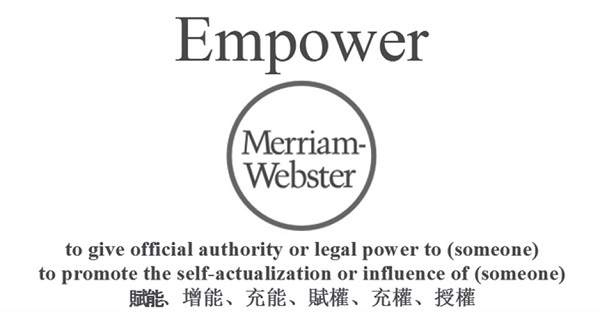The legacy of good housekeeping
[Easy Talk about Management Series] Training and Authorization

“And choose able men from among the people, men who fear God, are truthful and hate unjust gain, and appoint them to be captains of thousands, captains of hundreds, captains of fifties, and captains of tens, to rule over the people. Let them judge the people at all times. The great things will be brought to you, but they themselves will judge the small things. Then it will be easier for you, and they will also have the responsibility.” (Exodus 18:21-22)
In issue 46 (Winter 2016) of Kingdom of God magazine, we also quoted this verse to talk about how to build an organization. Organizations assign people to appropriate positions so that their abilities and gifts can be maximized to achieve goals; but to assign people to appropriate positions, they need to be trained first. Training may be through schools or training centers to equip people with the ability to accept the position; in addition, after taking over the position, they must continue to be given on-the-job training so that they can not only maximize their effectiveness in this position, but also acquire more expertise. It is best to give them the opportunity to move up a level and take on greater responsibilities. The above actions are what is generally called training, allowing children or subordinates to gain abilities, which is the so-called "empowerment".
How to empower
Let’s take the example of how Elijah, the most exemplary prophet in the Bible, trained the prophets and the prophet Elisha (see 1 Kings Chapter 19 to 2 Kings Chapter 2) to explain how to empower:
1. Elijah established prophetic schools in Gilgal, Bethel and Jericho to train prophetic disciples. This is like sending our children or subordinates to good schools or specialized training centers to train them.
2. Elijah took Elisha with him for training. This is the so-called "On Job Training", which emphasizes strategies learned in life or work. This is also the method Jesus used to bring disciples. The most important thing about on-the-job training is that leaders or parents must "lead by example" and first become a role model for followers, that is, first demand themselves (self-discipline), be able to be asked (have a teachable mind or be open-minded to accept different opinions), and also Dare to ask for subordinates or children. Therefore, leaders must have gentle words and effective communication in order to make people convinced. The most important thing for a leader is to have a selfless heart and be willing to help his children or cadres become better than themselves, just like Elijah was willing to give his coat (representing power or position) and doubled inspiring spirit (i.e. anointing and power) Give it to Elisha, so that our families, churches, institutions, governments, and nations will become stronger from generation to generation.
Because talent is the most important resource in an organization, when I ran a business or institution in the past, talent training must be regarded as one of the most important goals, and each supervisor must train two to three reserve cadres who can replace him. These reserve cadres can serve as supervisors when the organization expands, or as backup supervisors when the supervisor is promoted or changed.

▲empower.png: "Empowerment" is an important concept and method of leadership and management.
How to authorize
Exodus 18:22 emphasizes delegation: "Let them judge the people at all times; great matters will be brought to you, but they themselves may judge small matters." The so-called delegation refers to the leader's willingness to entrust authority or responsibility to Give a certain cadre (or child) and let him or her be responsible for managerial or transactional work. Proper delegation enables managers to no longer have to do everything themselves, and can devote more time and energy to the pursuit, setting and development of vision, vision, goals and strategies, and can lead the entire family or organization to operate better.
Empowerment is key to the smooth functioning of an organization. Leaders are willing to transfer decision-making power such as personnel, finance, affairs, communication and coordination to subordinates, and not only grant power but also entrust corresponding responsibilities. Therefore, authorization must develop a set of methods for subordinates to follow. This set of authorization methods should also be adjusted according to the capabilities of subordinates and organizational changes. The most important ones are Plan, Do, Check and Action, which are the principles of PDCA. Loop to understand and assess the execution status of tasks after authorization. When problems are discovered during the assessment, subordinates should be encouraged to turn crises into opportunities and encourage subordinates to pursue the root cause of the problem and actively solve it. Never blame your subordinates or children blindly. Only then can they develop an innovative spirit that is willing to take risks and make difficulties.
I remember that forty years ago, when my partners and I started our business, we had only NT$10 million in capital. We set a goal of training a department manager, giving them a chance to make mistakes of NT$1 million. It is because of this spirit of delegation that we have trained many subordinates who can take charge of their own affairs. It also proves that only by having cadres who can take charge of their own affairs can an enterprise or institution continue to operate sustainably.
God’s good stewards must be well trained and empowered
I hope that by training cadres (sons and daughters) and empowering them, we can make our families, churches, institutions and countries better from generation to generation. We also hope that every leader can use selfless love to empower their children or cadres, use a heart of inheritance and companionship to help them take over the baton smoothly, and appreciate what they do with a grateful heart, and provide timely support when they request it. Or make suggestions. In this way, we will be God’s faithful and good stewards, thereby allowing our families, churches, institutions, and nations to receive God’s blessings.
 Author profile Lin Yuanchang is one of the founders of Lite-on Group and served as general manager and vice chairman of the group. After retiring from the corporate world, he devoted himself to assisting churches and Christian organizations in improving their management capabilities and reforming their systems. He once served as the chairman of the Taiwan Christian Mustard Seed Association; he experienced the Holy Spirit and spiritual renewal at the age of fifty, and is now committed to helping promote the ministry of spiritual renewal.
Author profile Lin Yuanchang is one of the founders of Lite-on Group and served as general manager and vice chairman of the group. After retiring from the corporate world, he devoted himself to assisting churches and Christian organizations in improving their management capabilities and reforming their systems. He once served as the chairman of the Taiwan Christian Mustard Seed Association; he experienced the Holy Spirit and spiritual renewal at the age of fifty, and is now committed to helping promote the ministry of spiritual renewal.
